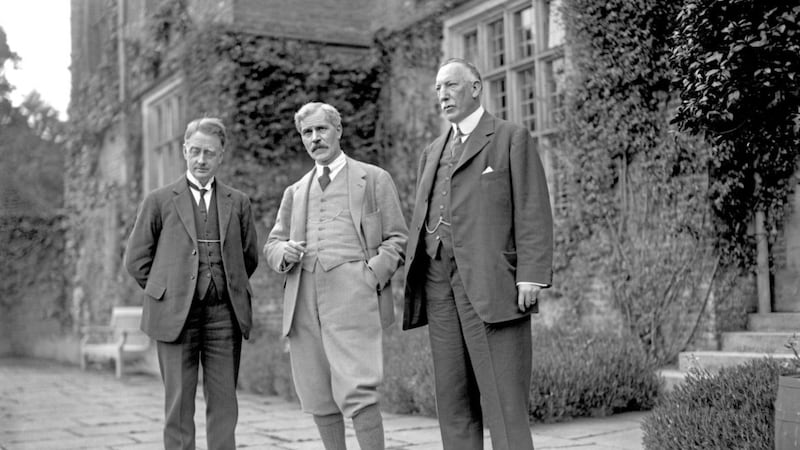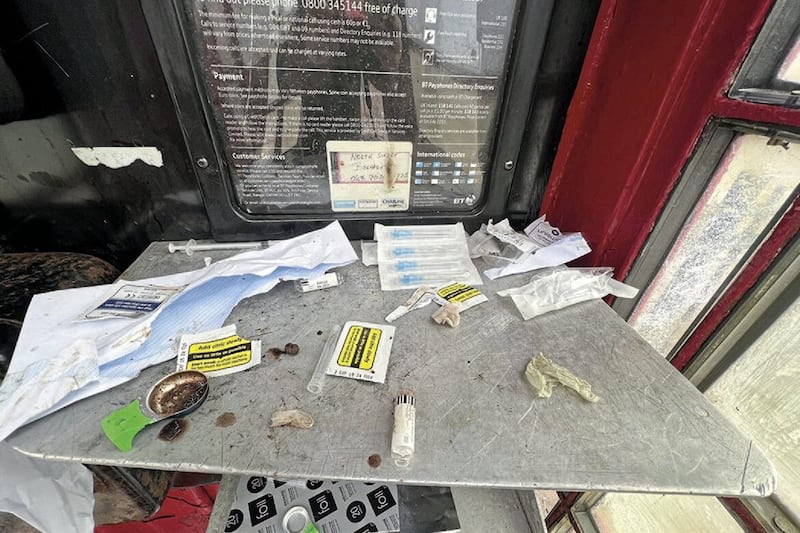For many of us Holy Week is a time of reflection. Every Easter, one of my rituals is to read the first few lines of Dante’s poem The Divine Comedy, which begins on the evening of Holy Thursday. “Midway along the journey of our life/ I woke to find myself in a dark wood,/ For I had wandered off from the straight path.”
Dante writes that he does not know how he ended up in the wood, only that it was a “bitter place” and “savage and stubborn”.
For the nine-week duration of the rugby rape trial, it has felt like our society was in a bitter place. The unprecedented nature of the case and the high-profile of the, now cleared, defendants, prompted thousands of self-appointed legal experts to give their opinions on social media or in bars and coffee shops across Ireland.
On a recent trip to Co Wexford, a friend handed me a note with a list of comments she had heard about the trial before last week’s verdict. None of them were sympathetic to the complainant, who had to endure days of cross-examination and watch as her blood-stained underwear was passed around court and scrutinised.
Unfortunately these callous attitudes were reflected in some members of the public who attended the hearings. Colleagues witnessed a few in the public gallery treating the case like a live Jeremy Kyle Show, complete with their own rolling commentary on proceedings. It felt at times like we’d regressed to the nineteenth century and were witnessing crowds eager to watch a public execution. Police have already questioned two people who took it upon themselves to break the law and name the young woman on social media.
As Stuart Olding’s lawyer Paul Dougan said, some social media users saw themselves as reporters and social commentators. During an interview after he verdict he mentioned “people from Australia commenting about a case, adding their tuppence worth, when all they had done was to read a comment posted by somebody else”.
Regardless of the verdict, the facts of the case are deeply disturbing. WhatsApp messages between the men, with references to spit roasting displayed boorish attitudes at best, ingrained misogyny at worst. None of the men seemed to see anything wrong with what they had written. None of their friends challenged them.
Speaking on RTÉ's Morning Ireland, Ian Power of youth information website spunout.ie said the case highlighted a "toxic masculinity" in Irish society.
Mr Power noted that after the four defendants were cleared many young male Twitter users wrote remarks which displayed a complete lack of empathy towards the young woman.
He also highlighted how women were referred to in the men’s group chats.
“I think that really has to be addressed and it’s only going to be addressed by speaking out,” he said.
He added: “Men really need to play their part and stand up and not be a bystander to this type of conversation”.
All four men have been cleared but their names will forever be linked to this case. As will the name of the young woman. Mr Dougan said lives had been “irreparably affected on both sides”.
“The social commentary on this case will run and run,” he said. “It is a salutary lesson for everybody.”
But what lessons will really be taken from the case? Surely it’s time for better education around sex and relationships. In our society sex is still linked to shame, so much so that it’s difficult to have a frank and open discussion. But we have to have it.
It seems ridiculous that we have to teach young people about empathy but we should. Relationship issues, including the need for respect between the sexes, should form a greater part of the curriculum. All Irish News staff are given ‘dignity in the workplace’ training, which includes being advised on our use of language in and out of the office. Surely sporting clubs which receive government funding should have to do the same? It’s time to make it clear to our young people what language is and isn’t acceptable. If it makes just a few people reflect on their words then the lessons will be worth it.
There are no victors in this case. The damage caused will last for a long time. But let’s hope that, in time, everyone involved will eventually get out of the dark wood.








